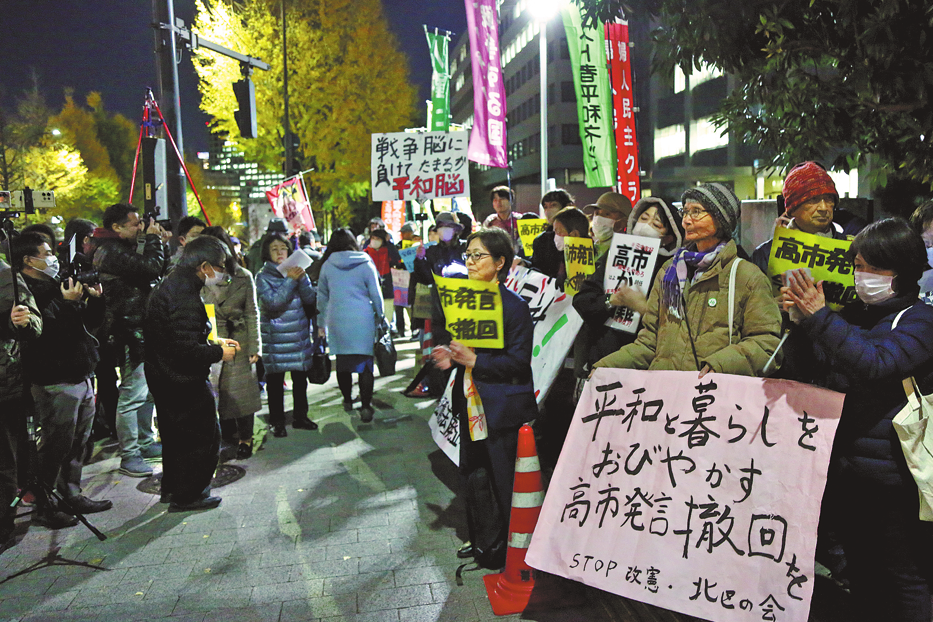Trade imbalance misleading, trade war damaging: Deutsche Bank

The trade imbalance between the United States and China is grossly misleading and a trade war between the two will seriously hurt both sides, according to a report by the Deutsche Bank Research.
The report was released at a time when tensions between the world's two largest economies escalated following a series of protectionist tariff measures unveiled by the Trump administration, raising concern for a trade war.
The Dow Jones Industrial Average plummeted 450 points on Monday, the day China started to slap new tariffs on 128 US products in response to the US steel and aluminum tariffs imposed on March 23 in the name of national security.
"The US business interests in China are much larger than what the trade data shows. The looming trade war puts these interests at risk," said the Deutsche Bank Research report.
Using "aggregate sales balance" which includes both trade balance and sales generated through subsidiaries Foreign Direct Investments (FDI) in destination countries, the research found that the actual bilateral imbalance is much smaller.
The total sales of US firms based in China reached $372 billion in 2015, including $223 billion by their subsidiaries in China and $150 billion through exports from the US to China, according to the report, citing figures from the US Bureau of Economic Analysis (BEA).
Meanwhile, US data show that Chinese companies sold $402 billion of goods and services to the US in 2015, including $10 billion through Chinese subsidiaries in the US and $393 billion through exports.
"This suggests a net balance of -$30 billion from the US perspective in 2015," said the report dated March 26.
US President Donald Trump has often blamed other nations for US trade deficits and described the deficits as a loss for the US and win for trade partners, a view that is dismissed by most economists and trade experts.
The Deutsche Bank Research report also showed that both the trade balance and the aggregate sales balance between US and China, though widened before 2009, have since diverged, driven by the surge of sales by US subsidiaries in China.
China accounted for a third of the incremental sales by US subsidiaries globally between 2010 and 2015. Firm level data shows the US ?rms' sales in China continue to outpace their global sales in 2016 and 2017, according to BEA data.
The report pointed out that trade balance is misleading, citing the example of Apple and General Motors. There were 310 million active iPhones running in China in 2016 and Apple generated $48 billion revenue from China in 2016, mostly from iPhones. But it was not reflected in the trade balance since China only imported $1 million of cell phones from the US in 2016.
Meanwhile, China exported $26 billion of cell phones to the US, counted as US deficit. But a study conducted a few years ago showed that $334 of iPhone sold at $549 went to the US. The rest are distributed among various suppliers, and only $10 goes to China as labor costs, according to the report.
For General Motors, the largest US auto maker sold 4 million cars in China and 3.6 million cars in the US in 2017. But China only imported 1.2 million from all countries in 2017, so GM likely sold its cars through its subsidiary in Shanghai.
The whole manufacturing and distribution process happened in China, hence it does not show up in trade statistics, the report said, concluding that it is misleading to judge economic exposure between two countries by looking only at the trade balance.
"This report helps illustrate the deeply intertwined nature of the US-China economic relationship, which some of the most frequently cited statistics do not fully capture," said Colin Grabow, a policy analyst at the Cato Institute's Herbert A. Stiefel Center for Trade Policy Studies.
"Any trade war between the US and China would provide the two sides with ample opportunity to inflict considerable pain on both themselves and each other," he said.
Economists at the Deutsche Bank Research said that each side has a lot to lose from a trade war. "The most damaging retaliation from China would be to punish the US business interests in China," they said.
They warned that a policy mistake on either side could escalate the tension and cause significant disruption to the global economy and financial markets.
"It is indeed mutually beneficial if China and the US avoid a full blow trade war. The aggregate sales balance is set to shift into surplus for US firms," said the report, citing words by Chinese Premier Li Keqiang on March 20 to further open the nation's service sector and strengthen the protection of intellectual property.
- China strongly condemns, firmly opposes new US tariffs to be imposed on Chinese
- US focuses on China's high-tech products with $50 billion in tariffs
- China announces new reciprocal tariffs on 106 US products
- China will take reciprocal trade measures against US
- China urges US to address trade dispute through dialogue
































